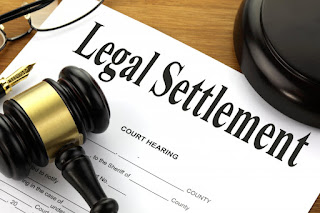Judge Judy, Law and Order, and many other lawyer-crime shows portray courtrooms with lawyers yelling, judges slamming gavels, and witnesses crying on the stand. While this does well for the dramatic effect and keeping viewers entertained, this is not an accurate representation of most courtrooms. Did you know that there are many different types of courts? For example, there’s criminal, civil, juvenile, and probate court.
Since Marcie specializes in three different areas of the legal world, I wanted to take a minute to delve deeper into how each of the courts of her three practice areas is different and why that is important to know.
1.) Family Law Courts
Although many family law issues fall under the civil court system, there are some specific issues that are meant for family court alone. Some examples are, “how to divide property between separating spouses, where children will live, and how family members will be financially supported.”
Family courts are also ones that try and ensure that a fair and equitable result is achieved for both parties.
In family court matters are also generally considered private between the two parties, unlike criminal court where high profile cases are often broadcast for the nation to see and weigh in on.
Family and civil courts also use the services of non-judicial personnel (such as mediators, evaluators, social workers) more so than criminal courts to hear and facilitate case decisions and agreements.
2.) Workers’ Compensation Courts
A case in workers’ comp. is presented to an Administrative Law Judge (ALJ) otherwise referred to as the Judge of Compensation Claims (JCC) and not a jury like in a criminal proceeding. Where criminal cases can take days or weeks, many work comp. cases are usually wrapped up in a matter of hours. That being said, if the case is more complicated it could take several days.
At a workers’ comp. hearing the injured party usually testifies and answers questions about the accident and related injuries.
Similar to criminal courts, the decision that is ultimately made is not instantaneous. Much like how the jury deliberates, the workers’ comp. judge will take your testimony, witness’s testimony, and exhibits and review them before coming to a decision.
3.) Bankruptcy Courts
One of the biggest differences for bankruptcy courts is that they play a very different role from other types of courts. Most courts end up with a winner-loser scenario. In bankruptcy court, the end goal is to find a compromise between creditors and debtors.
Bankruptcy courts have much more of a limited jurisdiction than other types of courts. This means that bankruptcy courts can ONLY hear matters regarding bankruptcy. Should another issue arise in a different field of law, the court simply cannot hear it.
Finally, unlike other courts that were created by the Constitution, bankruptcy courts were created by Congress so the way you can appeal a claim is different than many other courts.
While each court is different in its own way, the implications that come with appearing before any judge for any matter are very real. That is why it is important to be aware of how your claim will proceed and to make sure that you are best prepared for each step of litigation that you may encounter.
I hope that you have found this blog informative, and it opened your eyes to just how intricate the legal world and court system can be. If you would like to discuss a claim in any one of Marcie’s practice areas please be sure to fill out our contact form. We would love to see you for a free consultation!
***This blog is only meant for informational purposes. Nothing in its contents constitutes legal advice of any kind. Should you need legal assistance please fill out our contact form below to schedule a free consultation.
Sources: https://www.legalmatch.com/law-library/article/how-is-bankruptcy-court-different-from-other-courts.html
https://www.nolo.com/legal-encyclopedia/what-to-expect-at-your-workers-compensation-hearing.html
https://www.clicklaw.bc.ca/question/commonquestion/1154
https://momsfightback.org/family-court-vs-criminal-court-differences/









